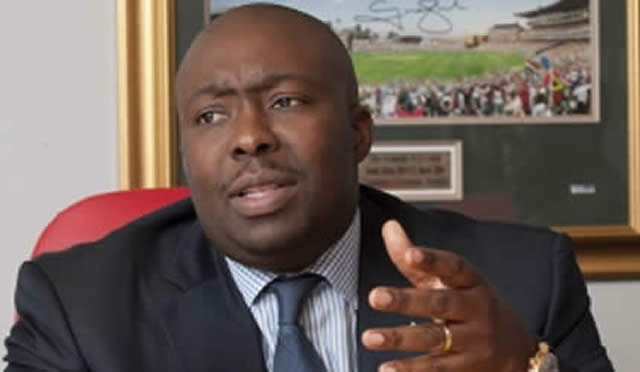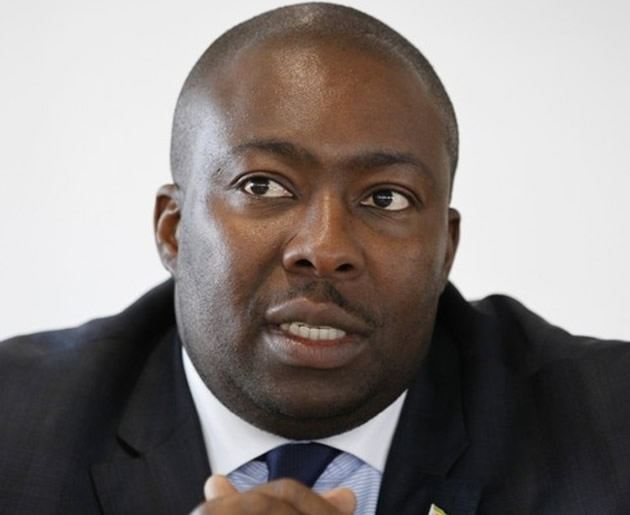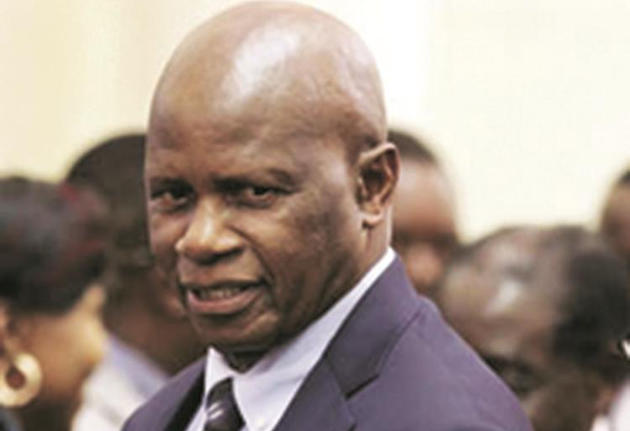Zanu-PF’s youth generation of shame

Tichaona Zindoga Political Editor
Last week an outfit calling itself Children of War Veterans Trust, or some such name, held a Press conference in which it attacked the so-called G40 faction. The object of the attack, in material terms, was ZANU-PF national commissar Saviour Kasukuwere, as well as the likes of Youth and Indigenisation Minister Patrick Zhuwao and Higher and Tertiary Education Minister Professor Jonathan Moyo.
The previous week, another Zanu- PF-linked group, Zimbabwe Youth Action Platform (ZYAP) reportedly threatened to manhandle the same officials “if they ever set foot at the National Heroes’ Acre.”
This narrative of factionalism is not new, and it is not the intention of this piece to belabour such a discussion. What can be remarked though is that there is a particularly worrying prism one could look at the present generation of the youth that are identifiable with, or actually belong to, the ruling ZANU-PF party. ZANU-PF is the party of revolution in Zimbabwe and one of the oldest, if remaining ones, on the African continent.
If one were to examine whether the present generation of the youth in the ruling party represent any revolutionary ideas — a generational paradigm or set of thoughts and philosophy — or whether they distinguish themselves in any way and manner that inspires confidence as tomorrow’s leaders and torch-bearers, one would be disappointed.
There are a number of ways one can look at the issue and come to the conclusion that today ZANU-PF has its generation of shame.
First, is the specimen above where the youth have been used as foot soldiers in the current leadership wars that are playing out in the ruling party.
The second aspect is that of social media wars in which ZANU-PF youth are expending their energy creating and participating in heated debates pitting two distinct sides; namely supporters of the G40 (and the First Lady Grace Mugabe) and opponents who purport to support Vice President Emmerson Mnangagwa whose succession to the Presidency is said to be what the G40 seeks to derail.
The social media wars are as vicious as any verbal exchange can be, but quite remarkably something we have not witnessed even between the ruling party and the opposition. In other words, there is now a bigger and more vicious fight between and among ZANU-PF followers than there is between ZANU PF followers and those of the opposition. Connected to the above are youth said to be aligned to Gokwe Nembudziya MP Mayor Wadyajena who have used their positions to denounce leaders of the so-called G40 group.
And it must be noted that in all of the above, the youth are being propped up by factional warlords in equal measure with no side, to be fair, ever going to be allowed to claim innocence.
In fact, we have reached that stage where the pursuit of individual goals and the fratricide, at least verbal fratricide, has become shameless. Now, it has to be conceded that this is about power. However, when the current generation of the ruling party look back, will they look at this particular epoch, if it can be called such, with pride?
Let’s be forthright about it, there has been something unflattering about the image of ZANU PF youth since 2000. These are youths that have been identifiable with political violence, although they have not been in a one man tango.
It has stuck though that the ruling party youth are violent and are anything but sexy or educated.
A story will be told that after these guys finished with the opposition — for which the likes of Jimu Kunaka who has purportedly met his Damascene moment — they went for each other and started to savage their brothers.
A bigger story will also be told that when the country was faced with challenges affecting none but the youth themselves, the youth of ZANU PF chose not to pursue issues for the betterment of their lot but to tear each other for the delight of some political gods.
You begin to think that opposition youth are better. For today, as they protest — whatever the bigger motivation — they are rallying behind ideas such as jobs and better living conditions, which the ruling party promised.
The youth of the ruling party are not demonstrating the good of their party or utilising the opportunities that their party is likely to accord with partiality, even. Where they should be taking mines, industry and even banks, they are busy tearing into each other, hold on, on Facebook and Whatsapp, which to all intents and purposes are very idle and diversionary media!
An opposition vigilante that shouts #FeesMustFall at University of Zimbabwe is way too better and worthier a citizen than a ruling ZANU PF factional activist.
It is a truth that must be asserted. This brings one to what may be a defining structural weakness of the ZANU-PF youth league. If one were to pair it with its counterpart in South Africa, the ANC Youth League, it would stand as a very shamefully poor cousin. And it is ironic that it has to be so when Zimbabwe and ZANU PF have President Mugabe who is many times a revolutionary than any ANC leader past or present or combined, even.
The ANCYL has been able to significantly influence events in the main body. It had the idea of “economic freedom in our lifetime” which, when it failed to take root in the ANC, now has found expression in the Economic Freedom Fighters led by Julius Malema.
Malema is the embodiment of a generational leader.
Where is our own Malema?
Who among the present youth is capable of being one any time soon?
Of course you cannot change the course of history on Whatsapp or Facebook unless you are its creator and that is taken already.
The ruling party does not do itself a favour by not allowing the youth wing to be independent and have a mind and programmes of its own. It has also done itself no favour by allowing old people to lead the wing which is not only illogical but also unacceptable in this and all eras.
A vibrant, semi to independent youth wing is critical in putting pressure on the old guard so that it not only fulfils its mandate but also because the youth are better placed to read societal moods and trends.
As we speak, it should have been the Zanu-PF youth league agitating for jobs and social services delivery, including affordable education. The ruling party youth must occupy that vast space not only to secure the future of the party but also act as a buffer against wayward elements that may use such bona fide demands for illegal regime change.
The ruling party must not be complacent and an active and organized youth wing, as a vanguard movement, can only keep the ruling party on its toes. In conclusion, do youths that today are being abused and made social media warriors not feel the irony that those using them actually fought a real war, which changed the course of history?
Cde Mutsvangwa, for example, always brags that he is of a generation that provided what he terms a critical mass during the decisive stage of the liberation war. Elsewhere, there are distinct generations identifiable with particular causes and actions from university strikes to trade unionism. And what would we call this generation of young politicians?











Comments